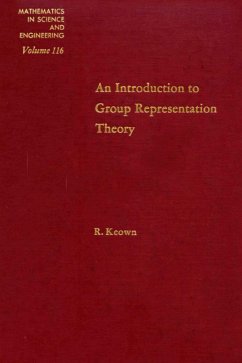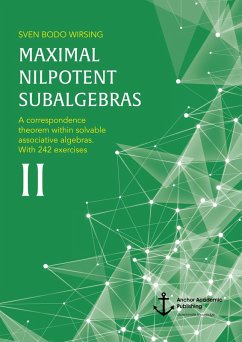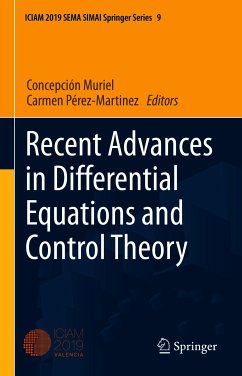
Representation Theory of Solvable Lie Groups and Related Topics (eBook, PDF)
Versandkostenfrei!
Sofort per Download lieferbar
112,95 €
inkl. MwSt.
Weitere Ausgaben:

PAYBACK Punkte
56 °P sammeln!
The purpose of the book is to discuss the latest advances in the theory of unitary representations and harmonic analysis for solvable Lie groups. The orbit method created by Kirillov is the most powerful tool to build the ground frame of these theories. Many problems are studied in the nilpotent case, but several obstacles arise when encompassing exponentially solvable settings. The book offers the most recent solutions to a number of open questions that arose over the last decades, presents the newest related results, and offers an alluring platform for progressing in this research area. The ...
The purpose of the book is to discuss the latest advances in the theory of unitary representations and harmonic analysis for solvable Lie groups. The orbit method created by Kirillov is the most powerful tool to build the ground frame of these theories. Many problems are studied in the nilpotent case, but several obstacles arise when encompassing exponentially solvable settings. The book offers the most recent solutions to a number of open questions that arose over the last decades, presents the newest related results, and offers an alluring platform for progressing in this research area. The book is unique in the literature for which the readership extends to graduate students, researchers, and beginners in the fields of harmonic analysis on solvable homogeneous spaces.
Dieser Download kann aus rechtlichen Gründen nur mit Rechnungsadresse in A, B, BG, CY, CZ, D, DK, EW, E, FIN, F, GR, HR, H, IRL, I, LT, L, LR, M, NL, PL, P, R, S, SLO, SK ausgeliefert werden.












